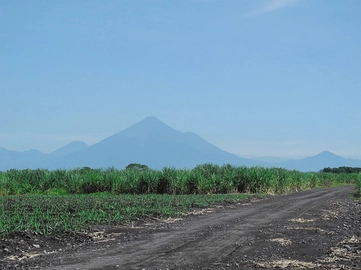However, most sustainability standards do not yet address the topic of food security in a way that it can be measured and verified 'in the field'. In other words, while the type and amount of pesticide applications are checked, there is no knowledge and control of whether workers and farmers suffer hunger, are malnourished or food secure. Another ignored question is if, how and to what extent certified farming practices have an impact on the food security situation of surrounding communities. To tackle these questions ZEF has developed a set of food security criteria which can be integrated into sustainability standards for any crop production. The FSS I Project tests these criteria in Asia, Africa and Latin-America and therewith supports sustainability standards with the implementation of food security criteria.
The trip to Guatemala and Bolivia
The project team visited a large sugar mill in Guatemala and another one in Bolivia. While in Guatemala the mill had its own large plantation with over 50000ha, in Bolivia several plantations ranging from 800ha to 13000ha had supply contracts with the mill. In Guatemala, roughly half of the sugar cane harvest was mechanized, in Bolivia practically everything was mechanized. We interviewed workers on all the plantations about their food security situation, labor rights, payments, and so on. We then discussed about our experiences and put our open questions on the table in stakeholder workshops attended by participants from government departments, sugar cane mills, NGOs and researchers.
Food security: shifting attention to an ignored problem
The stakeholders were open to talk about food security and our questions aroused interest and raised awareness on the issue. Plantation workers were generally food secure but told us they suffered from food insecurity outside the harvest season. Temporary contracts are very common for plantation work and income opportunities elsewhere are rare. The situation was much worse in Guatemala than in Bolivia. Solutions like farm diversification or social procurement were discussed and partly tested by the plantation owners. The stakeholders pointed out the benefits and challenges of sugar cane production for the region but also explained that the market demand for certified products is still limited.
This reduces the incentives to improve labor aspects, like workers' safety, and environmental issues, and also reveals the weak rolethat governments at all levels play. It was emphasized that sustainability certification does contribute to an improvement in the living and working conditions on plantations. Our food security criteria are a welcomed complementary set and feasible to be implemented in a plantation setting.



